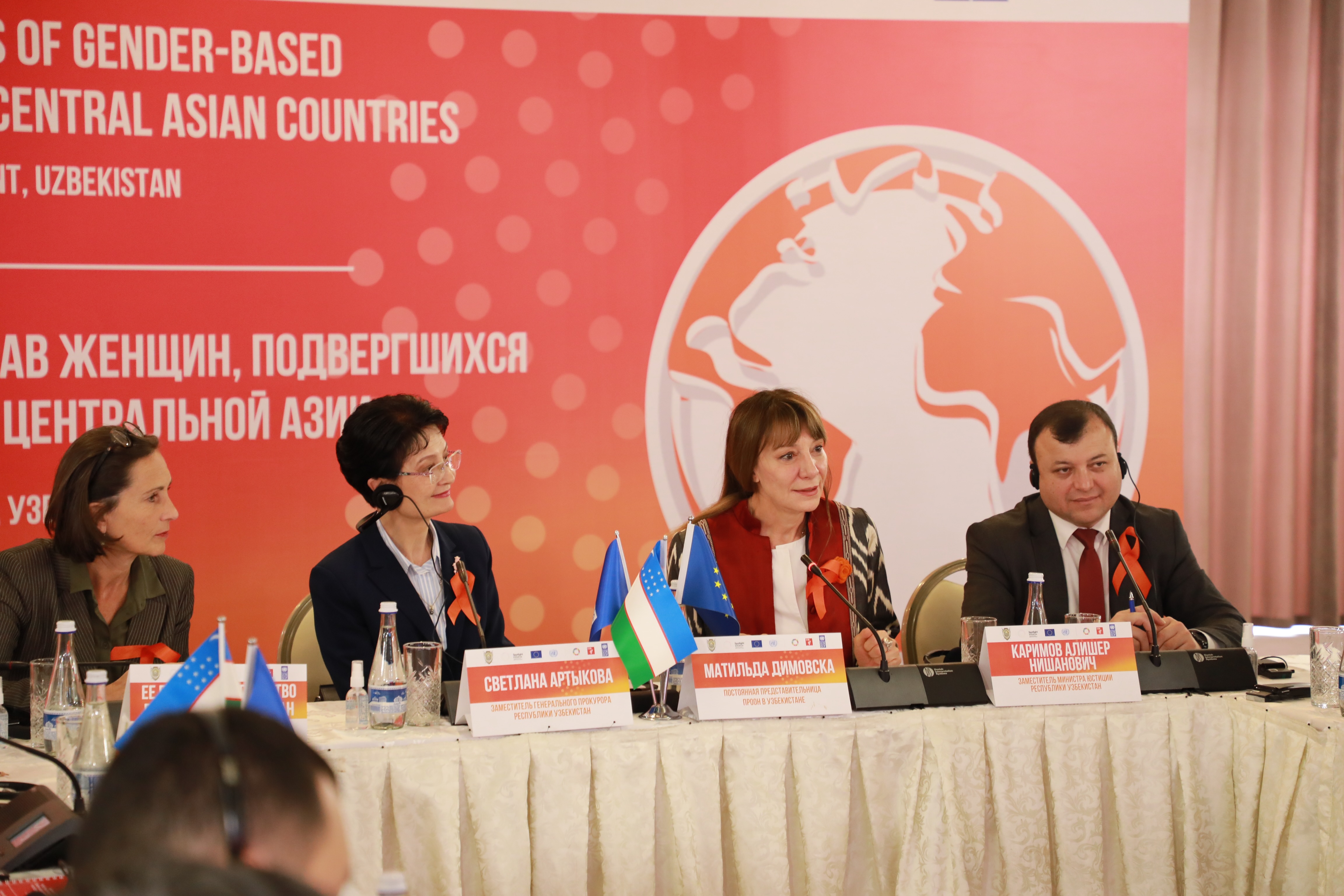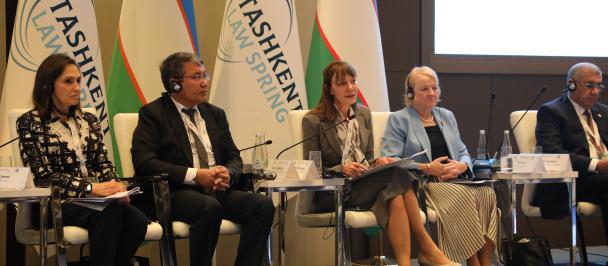Statement of Matilda Dimovska, UNDP Resident Representative in Uzbekistan at the Regional Round Table on “Protecting the rights of survivors of gender-based violence: Law Enforcement Practices in Central Asian countries"
November 29, 2022

Dear colleagues, Ladies and gentlemen, friends, Assalomu alaykum,
Today’s Round table is co-organized by the Ministry of Justice, General Prosecutor’s Office, the “Spotlight” programme, UNDP in Kazakhstan and Uzbekistan. We also have the European Union on board. It is rightly so, as we are to make a joint call for action against the most pervasive violation of human rights - gender-based violence. We are united around that call.
Violence against women and girls manifests itself in physical, sexual and psychological forms. Let me share some facts:
- Physical violence: Worldwide, 1 in 3 women have experienced physical or sexual violence — mostly by an intimate partner. So, women and girls’ biggest threat could be their closest ones. Worldwide, almost 3 in 5 women killed were killed by their partners or family in 2017. The true scale of femicide may be even higher.
- Sexual violence: 45% to 55% of women have experienced sexual harassment since with age of 15 in the EU
- Child marriage, which has profound effects of life choices: 650 million women were married before their 18th birthday.
Global shocks and uncertainties -- conflicts, pandemic, climate and environmental crises — are driving up the risks of gender-based violence.
In eight Asian countries, Internet searches related to violence, such as, “physical abuse signs”, “violent relationship”, “cover bruises on face” and “domestic violence hotline” rose during and after the COVID-19 lockdowns.
There is data about different aspects of that phenomenon. But I wish to focus on the help, available and used, by the survivors. And protecting their rights!
The theme of this year’s campaign is UNITE, a call for action of civil society, without whom it would be impossible to combat the gender-based violence.
But we also know what else is needed - a comprehensive approach that ensures that legislation is implemented, by:
- Availing services, access to justice for survivors;
- Ensuring capacity of law enforcement officials and police;
- Prosecution of perpetrators;
- Production and use of data to monitor change and assess the impact of policies.
Such approach makes the prevention more likely.
About the state in Central Asia, I will mention the critical conditions which if present would give better chances for implementation of the recently adopted legal documents to combat gender-based violence:
- More resources and capacities for service providers, including for the law enforcement institutions (and their training).
- Another issue is the corruption and impunity among law enforcement bodies that often leads to lack of accountability for perpetrators of gender-based violence. Therefore, independence of prosecutors, police and judges is crucial.
A strong rule of law and implementation of anti-corruption legislations in Central Asia should require that representatives of law enforcement be free from any undue external pressure, especially in cases of violence against women and girls.
- Patriarchal attitudes, pervasive gender stereotypes, including among the law enforcement bodies, may lead to women “left behind”, including no-women-around-the-table and women- survivors of violence left behind the doors.
- Improved data collection mechanisms on gender-based violence.
- Last, but not least, when women aren’t at the table, their voices aren’t heard. Women’s representation in law enforcement bodies helps to ensure that the needs of survivors of gender-based violence - women and girls are front and center.
For all these reasons it is so important to support, to capacitate the law enforcement bodies on GBV issues. As their proper actions help put gender-based violence higher on political agenda, but ultimately, they provide life-saving essential services.
For these reasons, we are united today to enhance the capacity of law enforcement institutions and support proactive law enforcement action against gender-based violence.
We trust that the exchange of experience and practice in preventing and combatting GBV among Central Asian countries will also be useful.
I am happy to see so many women around this table, representing the law enforcement bodies from Uzbekistan, Kazakhstan, Kyrgyzstan and Tajikistan.
Dear participants!
The new and overlapping global crises shall not deter our efforts to eliminate GBV; rather, they shall strengthen our resolve. We need it more than ever.
UNiTE to end violence against women and girls.
Sizlarga Katta Rakhmat! (Thank you so much).

 Locations
Locations
